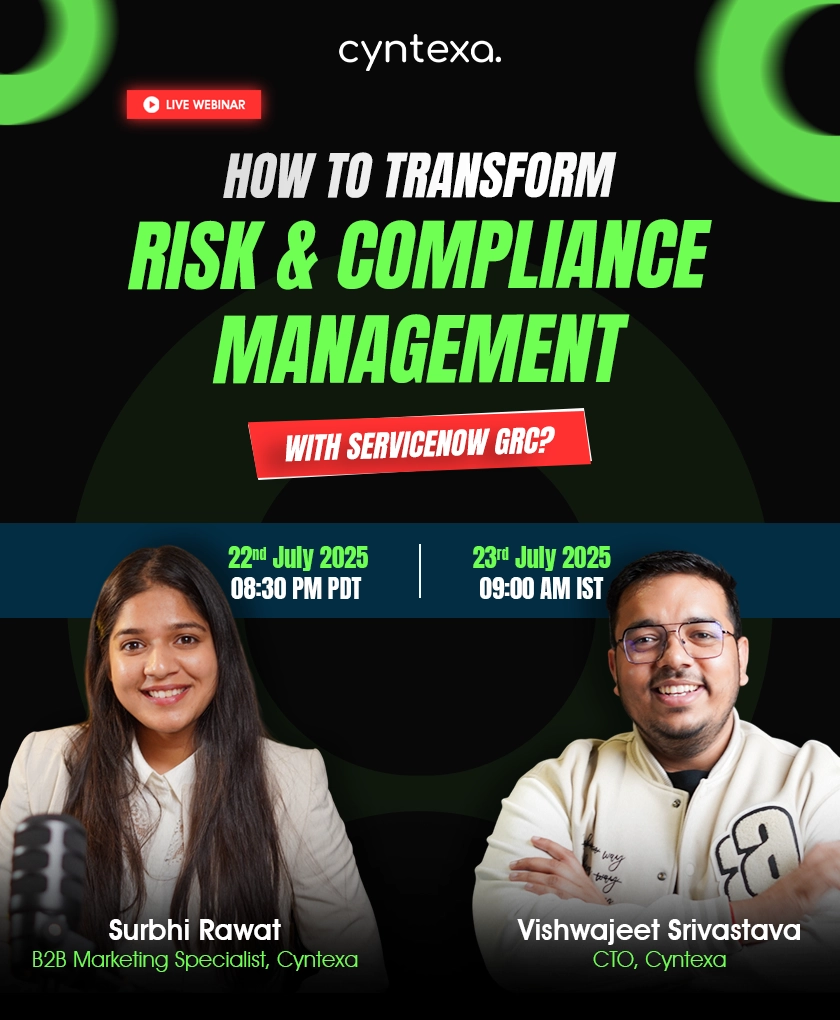Who Uses CRM? How it Transforms Businesses Across Industries?
Table of Contents
In today’s business dynamics, organizations are surrounded by a large volume of data. Leveraging this data is becoming challenging for businesses, as they must manage each customer interaction and sales pipeline and convert opportunities into leads.
If you are familiar with such problems and tired of inconsistent customer experience, then it is the right time to consider CRM software. In 2025 and beyond, CRM is not just a simple software, it is a necessity.
This blog will help you understand who exactly uses CRM, who needs CRM, and why. Let’s start!
What Does CRM Stand For?
CRM stands for customer relationship management. Simply put, it is a process of managing customer interactions and improving relationships.
Why Do Companies Use CRM Software?
From a startup to an organization, every kind of company uses CRM and gets benefits. Here are the key reasons why businesses use customer relationship management software.


To Consolidate Customer Data
CRM software gathers customer information from various sources, such as website interactions, emails, social media, etc., stores it in a centralized database, and creates a unified customer profile. Different departments within the organization use this consolidated data to access a customer history across all touchpoints.
To Manage Leads
CRM software streamlines the lead management process for businesses from initial interest to final conversion. Start by collecting customer information for potential leads through different channels such as social media, website, webinar, and email. Then, teams can determine how likely a customer can make a purchase and rank them based on their chances to convert.
To Improve Customer Relationship
CRM helps businesses manage their interactions with current and potential customers. By using customers’ unified data to provide a more personalized experience and resolve their queries, businesses can improve customer relationship and retention rates.
To Manage Sales Pipeline
CRM systems manage the sales pipeline starting from identifying leads and opportunities to customer interaction at every stage of the sales process. It even helps the sales team visualize the progress and increase closing rates by tracking improvement areas.
To Enhance Collaboration
Customer relationship management tools provide a shared platform for collaboration within and across different departments. It enables different teams to access customer-related information from a single platform, empowering them to work together on the same page to meet customer needs effectively and achieve business goals.
To Anticipate Customer Needs
CRM software can analyze customer behavior through detailed analytics that enables businesses to proactively identify customer needs and issues. This encourages teams to determine at-risk customers and implement improved strategies to reduce churn.
Who Uses CRM in a Company and Why?
Different departments use CRM tools in a company to streamline operations. Here are the key users of customer relationship management:
Sales Department
Sales teams use CRM to identify potential customers, centralize prospect information, automate prioritization and qualification of leads, and then salespersons can use the information to tailor personalized offers to customers. Also, sales reps use customer relationship management software to automate reminders and follow-ups to users to make a purchase. 78% of sales pros say CRM is effective at improving sales as per the Hubspot 2024 Sales Trends report.
Service Department
Service teams use CRM software to get access to unified customer data such as past interactions, purchase history, preferences, and more. By leveraging this information, service teams can provide a more personalized experience, faster query resolution, and improved satisfaction rates.
Businesses even can offer self-service options, leading to freeing up time for service teams for more complex queries and providing better support tailored to unique customer needs. 95% of service professionals say CRM and AI help reduce costs and deliver better customer service according to the Salesforce State of Service Sixth edition report.
Marketing Department
Marketing teams use CRM to get a 360-degree view of customer data including demographics and preferences of each. This tool enables marketers to segment customers based on different criteria, leading to personalized and highly targeted marketing campaigns for specific audiences. Marketers even can track the performance of campaigns to optimize future strategies according to what works and what doesn’t. Additionally, marketing teams can map the customer journey from initial awareness to post-purchase interaction to identify key areas for customer experience improvement.
Industries that Use CRM
CRM is not an imaginary or a luxury, it is a necessity across every sector and industry in 2025 and beyond. Let’s understand the key industries with real-world examples to know how organizations leverage CRM to drive growth.


Automotive
In the Automotive industry, car dealership businesses can use CRM to identify high-value customers (spending potential), streamline service appointments, and track customer inquiries and vehicle purchases.
Real-World Example of the Automotive Business Using CRM
Autociel is one of the prominent car dealers in Switzerland with over 5000+ customers, faced challenges in centralizing customer contacts, standardizing the sales process, and managing all opportunities. Implementing Zoho CRM software enables the development of a form to collect customer information. The CRM helps them centralize data to identify repeating sales opportunities and capture all leads directly into software with the entire process of follow-ups and sales cycle.
Technology
Technology companies use CRM to track customer support requests, increase resolution rates, and boost productivity. Also, software and tech businesses use this software to gain valuable customer insights and drive business growth by providing improved customer service.
Real-World Example of Technology Business Using CRM
OpenTable is a tech software for restaurant booking helping over 60k+ restaurants. As OpenTable has grown globally, they have experienced repetitive customer requests with the growing customer demand. Additionally, their agents faced challenges due to fragmented data across various systems. Here, implementing Salesforce CRM products Agentforce and Service Cloud enables OpenTable to provide self-service options, improve communication, and increase resolution rates.
Healthcare
In the healthcare industry, hospitals, clinics, and healthcare insurance companies use CRM to gather patient information, appointment scheduling, medical history, and more.
Real-World Example of the Healthcare Organization Using CRM
Simplyhealth provides health and dental plans to almost 3 million customers in the UK but has faced challenges due to disjointed systems. They were struggling to provide a better customer experience as they had customer span every age and group. Integrating Salesforce CRM Service Cloud and the Einstein 1 platform into their existing system leads to connecting data from multiple sources. This empowers Simplyhealth service teams to be more customer-centric and increase their productivity.
Financial Services
Banks, insurance companies, credit card companies, brokerage firms, etc use CRM to maintain customer financial data, manage accounts, and provide tailored financial advice.
Real-World Example of Financial Business Using CRM
Standard Bank Group has been serving clients since 1862 and has faced challenges due to a fragmented view of customer data and an inconsistent legacy system. They want a solution that streamlines operations and improves customer services. By integrating their platform with the financial service cloud and Einstein 1, they get a unified data repository that helps increase customer satisfaction.
Retail
Retail businesses use CRM to collect contact information, purchase history, engagement history, and preferences to tailor product recommendations, personalize marketing efforts, and deliver targeted promotions.
Real-World Example of Retail Business Using CRM
Decathlon is a sporting goods retailer with stores in over 79 countries, leading to delays in marketing new products due to having more than 10 tools across 50 countries. They shift to Salesforce Tableau to merge all tools data into one unified platform, leading to quick decision-making and helping staff to provide services customers want. This even improved their time to market 50% faster than before integration.
Real Estate
Real estate businesses use CRM to manage client interactions, manage leads (potential sellers and buyers), rent processes, property listing, and analyze market trends, allowing personalized communication and improved sales efficiency.
Real-World Example of Real Estate Business Using CRM
Strike, a real estate agency, wanted to provide a consistent customer experience, maintain compliance with regulations, automate property listing features, and improve sales performance. Integrating Zoho CRM enables automatically generating outbound calls for new leads and further services funnel that move customers to the final step. It allows them to send outbound reminder emails to customers to proceed further and provide team members with granular insights into the current state of leads.
Manufacturing
Manufacturer businesses use CRM to manage relationships with suppliers and distributors and to manage supply chain and customer order processes.
Real-World Example of Manufacturing Business Using CRM
Fisher & Paykel, a luxury kitchen appliance manufacturer, had faced challenges in providing a human-centered experience due to limited visibility into customer history and interactions. Employees of this business require better tools and correct information to provide efficient customer service. Integrating Salesforce CRM products leads their teams to deliver a personalized and convenient customer experience. With the automation and self-service option, service teams have saved hours.
Education
In the education sector, colleges and universities use CRM to manage student data, nurture alumni relationships, streamline enrollment processes, and make data-driven decisions to improve student engagement.
Real-World Example of Education Business Using CRM
Texas Tech University (TTU), a tier-one public research university in Texas with 40,000+ students, identifying students’ needs has challenging leading to dropouts. At this institute, counselors had to rely on a wide range of student information such as academic details and medical history to provide timely support. But a lack of unified student data makes it challenging for them to find out who needs support. TTU recognized this issue and adopted the technology Salesforce CRM offered and provided a student portal that runs on Experience Cloud. Then, students were able to use the self-service portal, leading to improved engagement and retention.
Nonprofit
A nonprofit organization uses a customer relationship management system to track donations, and donor details, seamless fundraising efforts, identify high potential donors, automate tasks like follow-ups and sending thank you letters, and maximize donation revenue.
Real-World Example of Nonprofit Organization Using CRM
Susan G Komen, one of the world’s largest organizations in the fight against breast cancer wanted to provide better cancer care that demands a unified view of patients. They needed a full view of patients for better-coordinated care, and follow-ups to provide patient support. Integrating Salesforce Health Cloud provided both patients and the organization with an easy-to-use solution. Now, they will be able to check detailed patient profiles with their breast cancer journey and help get care.
Hospitality & Travel
Airlines, travel agencies, and hotels use CRM software to streamline the booking process, manage customer details and preferences, and loyalty programs as well as personalize their experience to boost profitability.
Real-World Example of Hospitality & Travel Business Using CRM
Agoda, an online travel booking platform, offers 2.4 million properties in more than 200 countries and gives travelers easy access to various choices in villas, homes, and luxury and budget hotels suited to all budgets. Agoda’s requirements were seamless campaign management operations, deals, contracts, etc. By adopting Zoho CRM Plus, Agoda unified all requirements into one platform. This leads to meeting operational expectations including, opening and closing tickets with updates and multi-level approval.
What Are the Top CRM Tools?
Salesforce is the prominent player in the CRM (Customer Relationship Management) market followed by Microsoft, Oracle, and SAP.


Salesforce
With a market share of 21.7%, Salesforce is a prominent CRM service provider, according to Statista. It is a power-packed customizable solution that is suitable for all sizes of businesses. It provides an integrated platform for sales, services, marketing, commerce, and IT. With the Salesforce CRM AI capabilities, businesses can build and customize AI agents, automate tasks like follow-ups, create engaging marketing campaigns, and more. Its key features include mobile access to users, dashboards for visual representations to monitor performance, and collaboration features facilitating a shared platform for different teams.
Microsoft
Microsoft Dynamics with a 5.9% CRM market share comes in the list after Salesforce. It is a set of intelligent business applications for operational efficiency without increasing costs. Dynamic 365 applications can work together even with the existing system of a business. Its AI capabilities allow sales teams to close more deals and better customer relationships, marketing teams can create personalized customer journeys, and customer service teams to resolve issues quickly with gen AI and automation.
Oracle
Oracle Siebel CRM is a complete enterprise-grade solution with a 4.4% market share. It offers capabilities of integration, customization, scalable, and high performance for most complex operations organizations. Additionally, it provides a personalized user experience and can be deployed in the cloud and on-premises as well. Oracle CRM provides high-availability support and application updates to end users in zero downtime.
SAP
With a 3.5% market share, SAP CRM comes in the list in fourth place, enabling businesses to manage customer interactions throughout the customer lifecycle. It offers AI-enabled solutions for businesses to create a customer-centric experience. With its sales automation tools, companies can streamline sales processes and empower sales teams with AI-powered insights to nurture customer relationships. Also, SAP CRM software reduces marketing complexity and allows marketers to launch cross-channel campaigns at scale.
Companies Using CRM
A wide range of companies from startups to Fortune 500 companies such as American Express and Coca-Cola use CRM software to streamline their business process and manage customer relationships. Here are some examples of different industry businesses using CRM.
| Companies Using CRM | |
|---|---|
| Industry | Company & CRM They’re Using |
| Automotive | McLaren Racing (Salesforce CRM) Formula 1 (Salesforce CRM) Horizon Global (SAP CRM) |
| Technology | Grammarly (Salesforce CRM) ezCater (Salesforce CRM) |
| Healthcare | Henry Cloud (Oracle CRM) Men’s Health Clinic (Zoho CRM) Baptist Health (Salesforce CRM) |
| Financial Services | Standard Bank (Salesforce CRM) Bankmed (Oracle) Solevo Group (Microsoft CRM) |
| Retail | Saks (Salesforce) Gebr. Heinemann SE & Co. KG (SAP CRM) Apliiq (Zoho CRM) |
| Real Estate | Strike (Zoho CRM) |
| Manufacturing | Siemens (Salesforce CRM) Cars Protection Plus (Zoho CRM) G&J Pepsi (Microsoft CRM) |
| Education | George Mason University (Salesforce CRM) University of Western Australia (Oracle CRM) |
| Nonprofit | Make-A-Wish (Salesforce CRM) |
| Hospitality & Travel | Air France-KLM (Salesforce CRM) NESCAFÉ Dolce Gusto (Oracle CRM) |


Make Your CRM Implementation Journey a Breeze with Cyntexa
CRM tools and their power-packed features may only be useful when a business implements the platform successfully and utilizes its capabilities fully. Leveraging CRM software without expending the budget and getting a better ROI can be possible with expert guidance. We at Cyntexa offer certified CRM implementation experts and help businesses implement the platform as per the unique requirements and achieve better results. Thus, why you are still waiting, take the right step right now and get a seamless CRM implementation journey.
Don’t Worry, We Got You Covered!
Get The Expert curated eGuide straight to your inbox and get going with the Salesforce Excellence.
AUTHOR
Tanushri
Head of Growth And Strategy
Tanushri heads Growth and Strategy at Cyntexa, with over 6 years of experience in sales and marketing. She specializes in aligning go-to-market teams, scaling revenue operations, and building structured, tech-enabled growth plans. Tanushri also advises businesses on Salesforce, ServiceNow, AWS and Google Cloud adoption, ensuring each strategy is execution-ready, future-proof, and tailored to the organization’s maturity and growth goals.


Cyntexa.
Join Our Newsletter. Get Your Daily Dose Of Search Know-How









